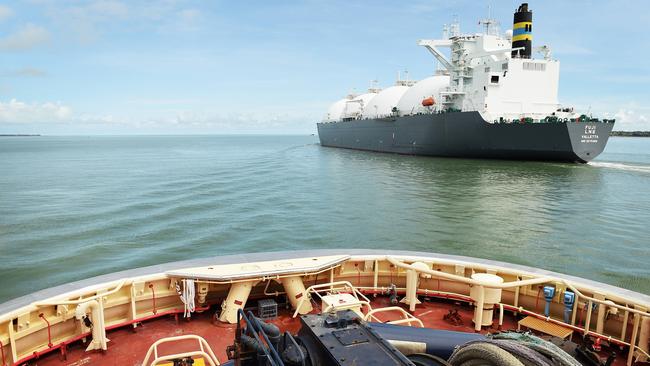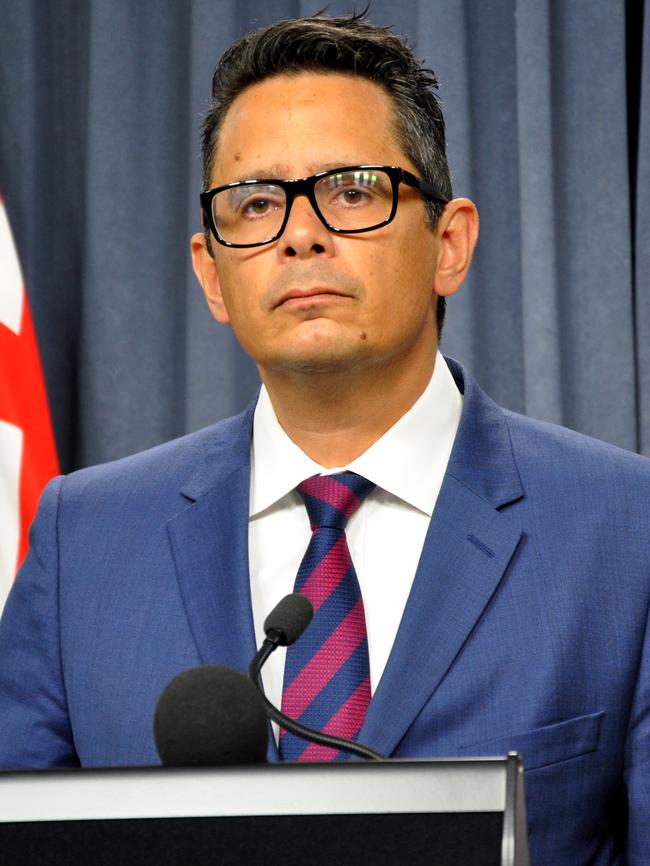EPA backflip shows where true power lies
West Australian EPA chairman Tom Hatton is far from the only public figure to have taken on the resources sector ... and lost.

As Tom Hatton, chairman of Western Australia’s Environmental Protection Authority, nurses his bruises this weekend after his embarrassing backflip on carbon offsets, he can take solace from the fact he is far from the only public figure to have taken on the resources sector and lost.
Hatton joins a long list including treasurers, premiers and prime ministers who have all learned the hard way about the power and influence that the major miners and oil and gas producers can exert.
On Thursday, after a week of intense pressure from the oil and gas industry, the EPA formally withdrew its new guidelines that would have required all major new industrial projects in the state to fully offset their greenhouse gas emissions.
The short-lived attempt is the latest piece of public policy swiftly snuffed out by an industry backlash.
Hatton, at least for now, still has his job at the EPA. The same can’t always be said for others who have tried to take on the sector.
The plan by Kevin Rudd and his treasurer Wayne Swan to increase the taxes on the mining industry sparked arguably the biggest industry backlash in Australian history and triggered the events that ultimately cost Rudd his prime ministership.
More recently, Brendon Grylls, then-leader of the Nationals in WA, lost his seat and his political career after hatching a plan to impose an additional multi-billion-dollar royalty on major iron ore miners BHP and Rio Tinto.
The mining industry spent an estimated $4 million on an advertising campaign targeting Grylls, effectively terminating the career of the state’s third-most senior politician.
It was a stunning fall for the talented Grylls, who had been the kingmaker of WA after the 2008 state election and who was the architect of the Royalties for Regions program that brought billions of dollars of government money into the electorates of the Nationals.

The first budget of WA’s current Treasurer, Ben Wyatt, featured a plan to lift royalties paid by the gold sector to a level comparable with the state’s other commodities. That too sparked an aggressive backlash from the gold industry even as it enjoyed fat margins and profits. Despite Wyatt smoothing off some of the policy’s rough edges to insulate the state’s more marginal mines, the increase was killed off by the opposition and crossbench when it finally went to the upper house.
The industry response to the EPA’s proposed carbon offset changes followed the same well-worn playbook from those other policy fights: industry cries “sovereign risk” and “uncertainty”, warns of big job losses and a plunge in investment, and launches an advertising blitz.
The procession of policy battles shows the real power in Perth lies not in the state’s ageing Parliament House, but in the gleaming St Georges Terrace towers that the building faces.
There have been some WA politicians who have managed to score policy wins over the years.
Labor premier Alan Carpenter managed to introduce a domestic gas reservation policy that required the big LNG producers to set aside a share of gas for the local market. It too drew strong opposition from the industry and Carpenter was pilloried by the federal Coalition government, although the contrast between the cheap and plentiful gas in WA and the energy crisis on the east coast shows that Carpenter was right to push for the plan.
Carpenter’s reservation policy did come with a high cost, though — the giant Ichthys LNG project of Japan’s Inpex and France’s Total was lost to the state after the proponents opted to build a lengthy pipeline to Darwin rather than to a much closer site on the Kimberley coast.
Former WA premier Colin Barnett also managed to negotiate a big rise in iron ore royalties during his time in power.
In both instances, Carpenter and Barnett managed to act when their bargaining power was at its strongest. The gas reservation policy and iron ore royalty hike were both secured when the respective industries were proposing massive new projects and needed government approval to grow. Standing up and bargaining hard at those times is not always easy for a political leader, given the prospect of the jobs and investment attached to those big new projects.
The Scarborough and Browse LNG projects at the centre of last week’s EPA storm are worth $US11 billion ($15.6bn) and $US20.5bn respectively, will create about 5000 new jobs and should generate billions of dollars in taxes and royalties for decades to come.
There is not a decision a state premier can make that can create as much investment and revenue and as many jobs as a single final investment decision in an LNG project.
It didn’t take long for WA Premier Mark McGowan to distance himself from the EPA’s new position, going public within hours of the announcement to assure people that jobs were his “No 1 priority” for the state.
Then, despite the EPA being an independent regulator, it was McGowan who, just hours after meeting with the state’s most senior oil and gas executives, called Hatton to negotiate the terms of the EPA’s surrender.
“I want us as a nation to do more in relation to (climate change),” McGowan said, “but I think the guidance that was released last week was not the right way to go when you consider that all it would mean is that Queensland and NSW is advantaged against gas from Western Australia.” Industry had good reason to fight the EPA’s changes, both the structure of the recommendations and the way they were introduced.
There was a lack of broad consultation in the EPA’s approach, while the proposed measures went well beyond anything being touted at a national or international level.
If implemented, they would have disadvantaged WA projects against rival, more emissions-intensive developments elsewhere in Australia and the world. The move was also a dangerously political one for an organisation of unelected bureaucrats.
But the risk for the resources sector, after yet another successful campaign against change, is that it plays the sovereign risk card too hard and too often.
In a post-royal commission era, sympathy for big businesses can start to wane pretty quickly if and when companies misstep. Episodes such as the east coast gas crisis and the Singapore tax evasion cases that have ensnared the likes of BHP and Rio Tinto invariably damage the standing of the industry in the eyes of the public.
There are some signs that sentiment is starting to shift. The Morrison government’s ongoing talk of taking a “big stick” to the energy industry if it doesn’t get the east coast market sorted — while only talk, rather than action, at this stage — is the sort of rhetoric not typically found within Coalition governments.
While Hatton licks his wounds, the oil and gas sector will be reflecting on the swift success of its latest lobbying campaign. The risk, however, is that there is an unknown price to pay for the win in the future.


To join the conversation, please log in. Don't have an account? Register
Join the conversation, you are commenting as Logout